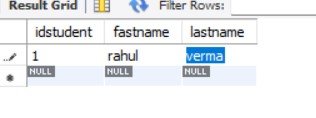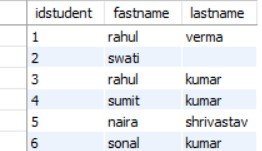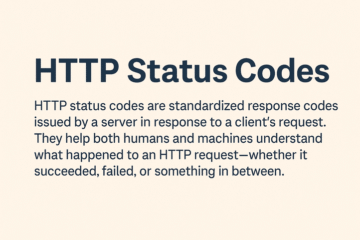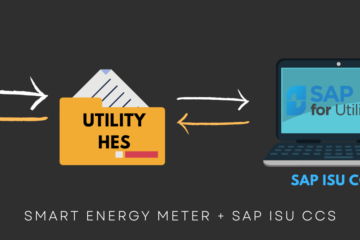SQLAlchemy is a SQL toolkit and Object Relational Mapper (ORM). It is written in Python and gives power and flexibility of SQL to an application developer. It is an open source and cross-platform software released under MIT license is knows as SQLAlchemy. SQLAlchemy was first release in February 2006
Installation
There are two ways to install SQLAlchemy
- The most efficient and easiest way is by using the Python Package Manager . This can be easily done by typing the following command in the terminal.
- pip install sqlalchemy.
- In the case of anaconda distribution of Python or if you are using this particular platform. This can be easily done by typing the following command in the terminal.
- conda install -c anaconda sqlalchemy.
Connecting to the Database
This can be easily done by typing the following command
import sqlalchemy as db
engine = db.create_engine(‘dialect+driver://user:pass@host:port/db’)
Engine class
Some important methods of Engine class are following :-
| Method | Description |
| connect() | The return connection object. |
| execute() | The execute a SQL statement construct. |
| begin() | The return a context manager delivering a Connection with a Transaction establishes. |
| dispose() | The dispose of the connection pool used by the Engine. |
| driver() | The driver name of the Dialect in use by the Engine. |
| table_names() | The returns a list of all table names available in the database. |
| transaction() | The executes the given function within a transaction boundary. |
Creating Table
SQLAlchemy Column object represents a column in a database table which is in turn represented by a Tableobject. Metadata contains definitions of tables and associated objects. Metadata is a collection of Table objects.
from sqlalchemy import MetaData meta = MetaData()
Table class represents corresponding table in a database. The constructor takes the following parameters.
- Metadata :- This object that will hold this table.
- Column :- One and more objects of column class.
Data types
- Boolean
- Float
- Integer
- String
- Text
- Date
- Numeric
- DateTime
- Time
- BigInteger
- SmallInteger
To create a students table in School database
from sqlalchemy import Table, Column, Integer, String, MetaData
meta = MetaData()
students = Table(
'students', meta,
Column('idstudent', Integer, primary_key = True),
Column('fastname', String),
Column('lastname', String),
)
The create_all() function uses the engine object to create all the defined table objects and stores the information in metadata.
meta.create_all(engine)
Complete code is given below
from sqlalchemy import create_engine, MetaData, Table, Column, Integer, String
engine = create_engine('sqlite:///school.db', echo = True)
meta = MetaData()
students = Table(
'students', meta,
Column('idstudent', Integer, primary_key = True),
Column('fastname', String),
Column('lastname', String),
)
meta.create_all(engine)
SQL query for table creation as follows
CREATE TABLE students (
idstudent INTEGER NOT NULL,
fastname rahul,
lastname verma,
PRIMARY KEY (idstudent)
)
SQL Expressions
The expressions are construct using corresponding methods relative to target table object.
Insert Statement
The INSERT statement is create by executing insert() method are follows
ins = students.insert()The below code inserts details like student id, fastname, lastname.
'INSERT INTO students (id, fastname, lastname) VALUES (:id, :fastname, :lastname)'Example
ins = users.insert().values(id=2, fastname = ‘swati’, lastname= kumari) str(ins) ‘INSERT INTO users (id, fastname, lastname) VALUES (:id, :fastname, :lastname)’
Output

Similarly, methods just like update(), delete() and select() create UPDATE, DELETE and SELECT expressions.
UPDATE Expression
Syntax
table.update().where(conditions).values(SET expressions)
Example of Update Expression
from sqlalchemy import create_engine, MetaData, Table, Column, Integer, String
engine = create_engine('sqlite:///school.db', echo = True)
meta = MetaData()
students = Table(
'students',
meta,
Column('idstudent', Integer, primary_key = True),
Column('fastname', String),
Column('lastname', String),
)
conn = engine.connect()
stmt=students.update().where(students.c.lastname=='roy').values(lastname='raj')
conn.execute(stmt)
s = students.select()
conn.execute(s).fetchall()
before

after

DELETE Expression
Syntax
stmt = students.delete()
Example of Data Expression
from sqlalchemy.sql.expression import update
from sqlalchemy import create_engine, MetaData, Table, Column, Integer, String
engine = create_engine('sqlite:///college.db', echo = True)
meta = MetaData()
students = Table(
'students', meta,
Column('id', Integer, primary_key = True),
Column('name', String),
Column('lastname', String),
)
conn = engine.connect()
stmt = students.delete().where(students.c.lastname == 'roy')
conn.execute(stmt)
s = students.select()
conn.execute(s).fetchall()

If you have any queries regarding this article or if I have missed something on this topic, please feel free to add in the comment down below for the audience. See you guys in another article.
To know more about SQLALchemy Library Function please Wikipedia click here.
Stay Connected Stay Safe, Thank you.



0 Comments